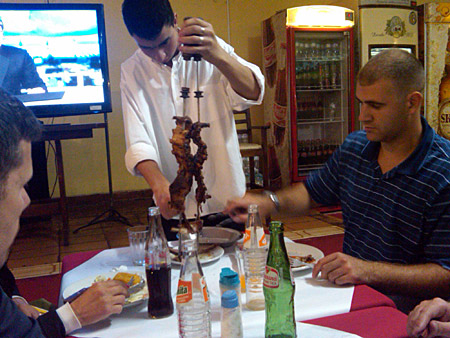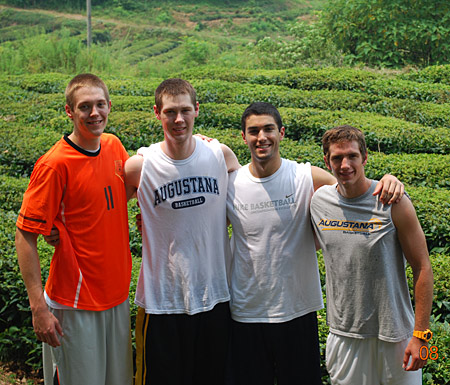The Penn State-Behrend men’s basketball team is Brazil, on an eight-day/seven-night tour of Brazil’s most historic cities including Guaruja, Sao Bento do Sapucai and Paraty. The team will compete in three contests against Brazilian teams and co-host two basketball clinics during their travels. Chris Saltzman blogs:
The plane ride was long roughly 9 hours, but all worth it. We had about an hour and half bus ride from the airport to our hotel in Guaruja, Brazil. Guaruja is right on the beach and you can see the ocean from our hotel. We rode through the city of Sao Paulo, which was extremely eye opening. There was massive amount of poverty, which really makes you think about how good we have it back in the states.
We had practice at a community sports complex and there were little kids in awe when they saw us walk in. Our tour guide said it is not every day they get to see Americans and it is a big deal when they do. They were making our old assistant coach say words in Portuguese which were apparently bad words and they loved it. They were watching us practice as if they have never seen basketball before. They were asking for our autographs which felt pretty abnormal but it made the kids happy.
We went to a place called Hurrascaria Chapao for dinner. They were bringing around all different kinds of meat, slicing it right at the table. When the servers brought it to your table you had to use prongs to catch it as they sliced everything and anything you could have imagined. I must say that if you haven’t tried some chicken heart before you should probably get on it asap.

Next up – Surfing lessons at a local beach. Looking forward to seeing who can actually stay on the board.
